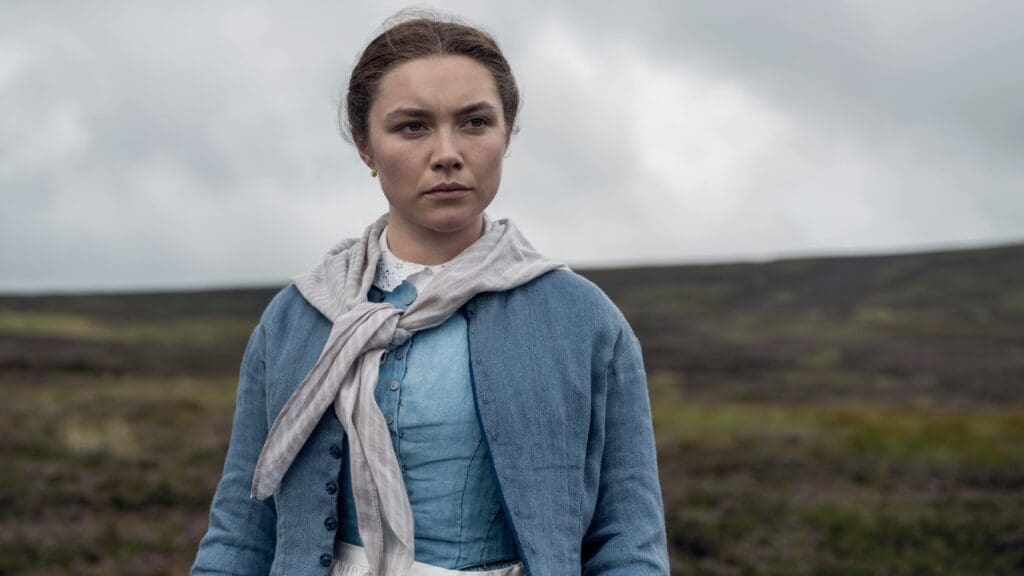Summary
Pugh gives a wonderful performance in The Wonder, a drama that engages its audience by finding originality in cold, hard truths.
We review the Netflix film The Wonder, directed by Sebastián Lelio, which does not contain spoilers.
The Wonder, a film adaptation of Emma Donoghue’s novel of the same name, is a story of deeply rooted religious zealotry and obsession. Taking place in the mid-1800s around The Irish Midlands, director Sebastián Lelio‘s (Gloria Bell) somewhat faithful transfer to the silver screen pairs well with modern themes such as isolation, loneliness, and untold secrets we keep for ourselves and from others. This is a gothic tale of religious zealotry and obsession
The story follows an English nurse, Lib Wright (Florence Pugh), who is summoned to a tiny village to observe what some claim is a medical anomaly or maybe even a miracle. An 11-year-old girl, Anna (played by Kila Lord Cassidy, astounding here), has survived without food for more than four months. This is a deeply religious community. Under that leadership, which includes a priest (Belfast‘s Ciaran Hinds) and a local physician (The English‘s Toby Jones), Lib wants to keep watch of Anna for two weeks. Why? To verify the miracle this child represents.
Of course, Lib doesn’t believe a word of it. Along the way, Lib meets an equally skeptical reporter from London, William Byrne (Tom Burke). The confident man, bordering on arrogance, was originally from this small community, a hamlet that’s not exactly out of the mind of Shirley Jackson. However, some of the stories sound like they may be. For example, Byrne’s family killed themselves by starvation. They are nailing themselves into their home so they cannot leave. Lib, who has seen so much tragedy and bloodshed in her own life by being a nurse in wartime England, feels attracted to him, but even more so when they share a deeply felt trauma.
The script, written by Donoghue, Lelio, and Conversation with Friends scribe Alice Birch, feels light, but beneath the surface is wonderfully plotted. Dialogue between family members, recounting, and even prayers take on more significant meanings that unwrap a sinister mystery. It even reflects on historical themes of views of women. This also reflects the attitudes the old white men in the village even have of Lib, a nurse they brought over from England for her expertise.
The Wonder is supposed to incite the audience’s anxiety, frustration, and irritability that you feel through the Lib character. One where children commit self-harm, while the family and leadership are negligible. There are also themes of how people react to trauma. Case in point, Lib sucks on a bloody cut on her finger at several points. This creates a euphoric sensation for her. When traumatic experiences trigger her, this is a way for her to self-soothe her brain from temporary signals of fear and anxiety.
And that is essentially what The Wonder is about — a psychological drama that engages its audience by finding originality in cold, hard truths. An honesty that engages people with shared pain, trauma, and experiences and how the characters manage them. Religion, in a sense, is issued in the same way, as a guidebook or an explanation, and when you cannot produce answers, you can always fall back on it being “God’s will,” so to speak. Pugh, who gives a wonderful, understated performance, along with Lord, who has that knockout scene with the film’s star, gets to the delicate center of that theme.
What did you think of the Netflix film The Wonder? Comment below.
More Stories for The Wonder
- The Wonder ending explained
- Will there be a sequel to The Wonder?
- Where was The Wonder filmed?
- 10 movies like The Wonder



